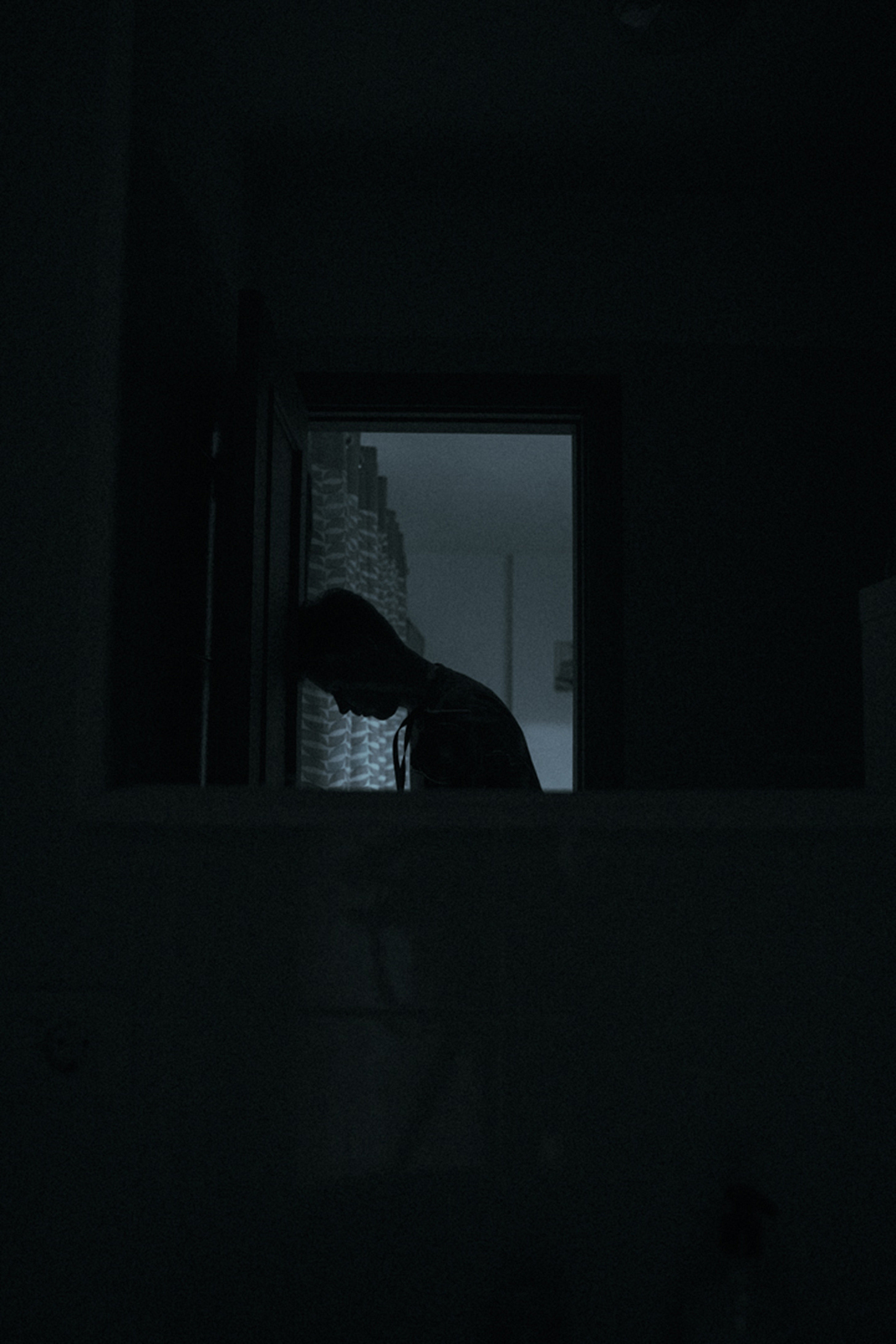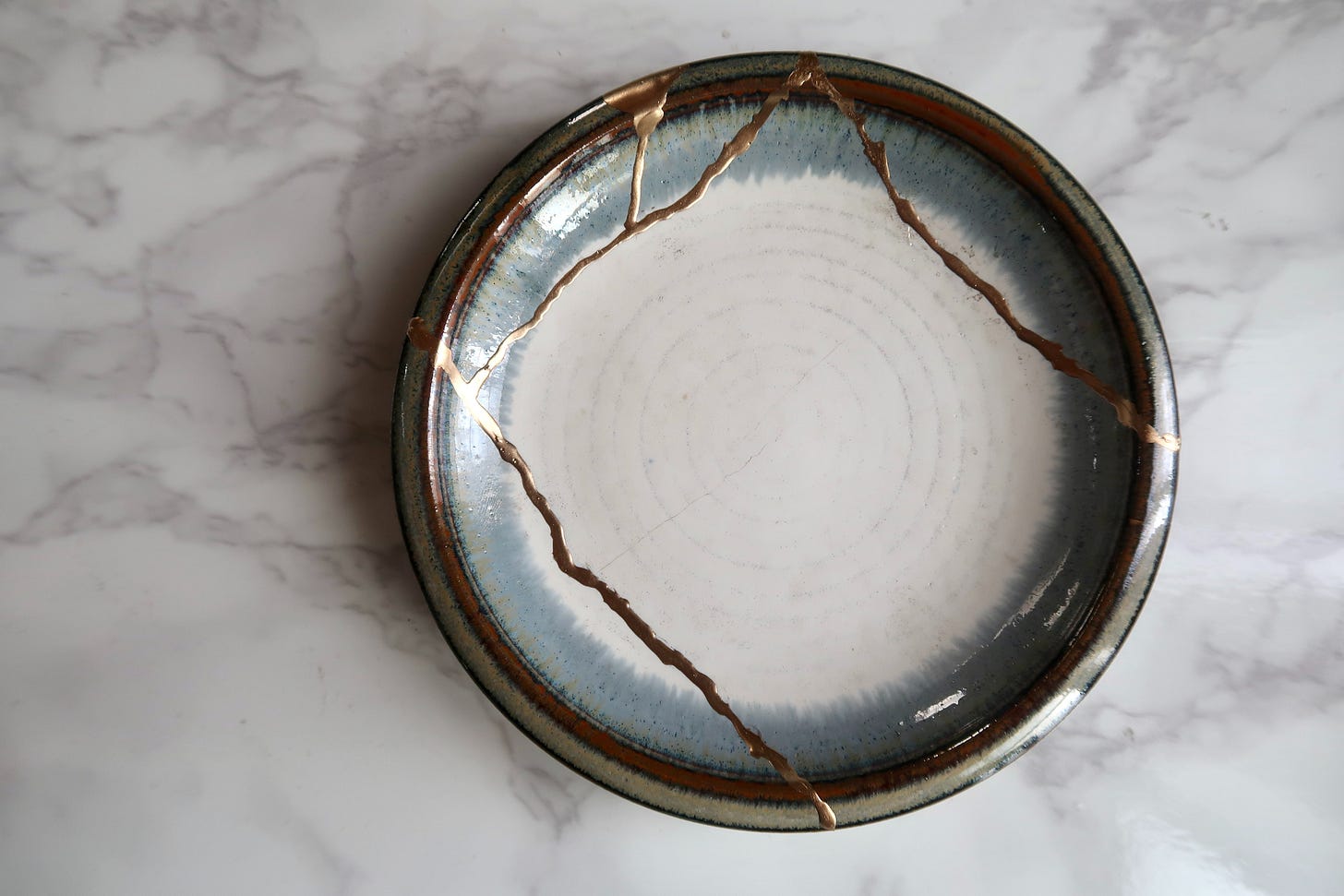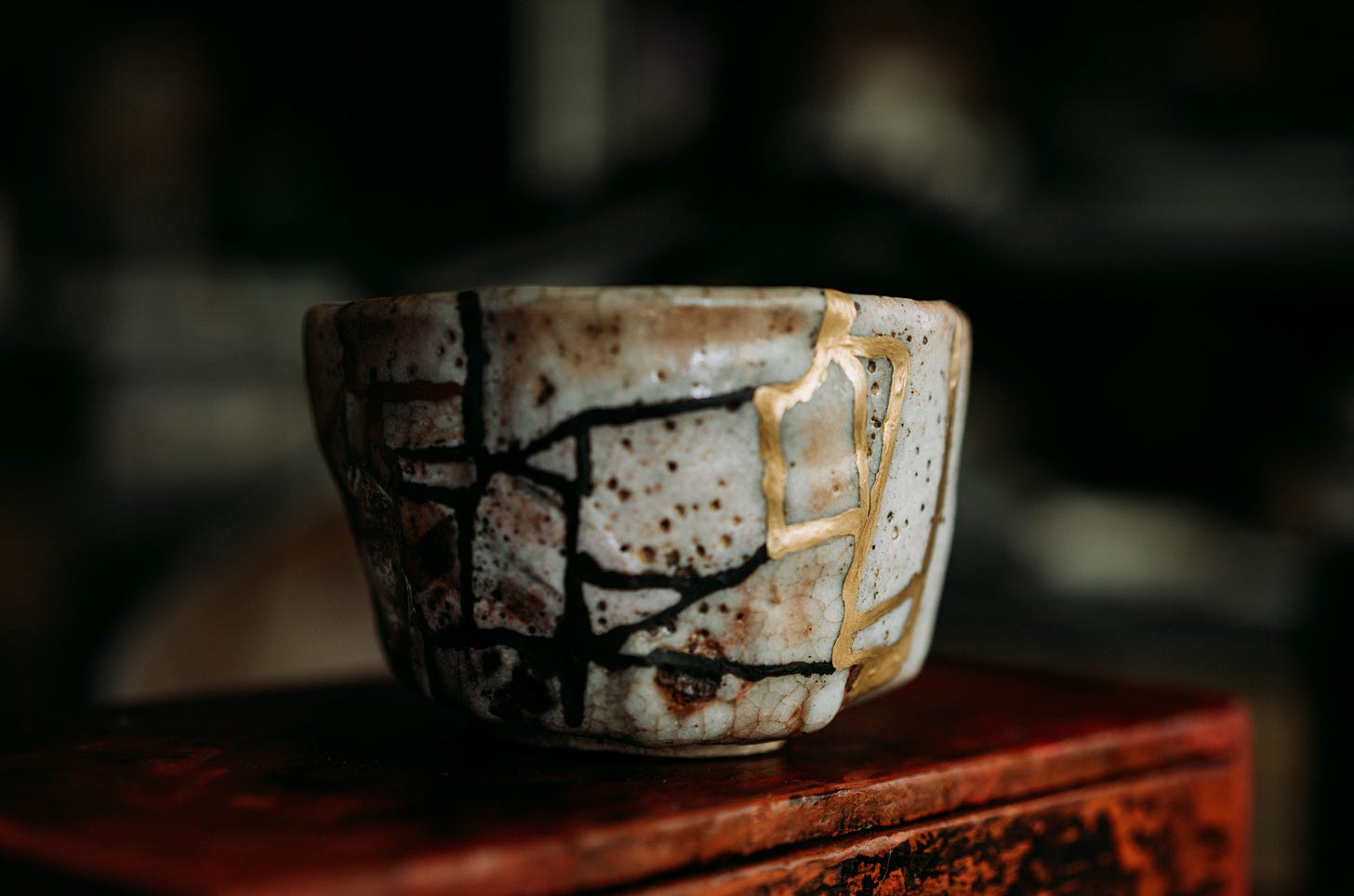Brief Prologue
A Note prompted this article from
in response to an essay from Kristin Haakenson, at which led to a conversation with Kristin, and Haley Baumeister at . It occurred to me during this conversation that my experience was not unique. Articulating the ecumenical mess many of us have found ourselves in might help some achieve clarity. It may help someone realize they are not alone in this land of confusion (cue Genesis).Still Learning
As a man born, bred, and baptized in the Bible Belt, supposedly a culture saturated in Christian principles and teachings, you might think I would be more familiar with the liturgical calendar. Yet, only within the past month did I learn every day has designated reading. Seriously. I’m 32, from a place with more churches than Walmarts and Waffle Houses, and I just learned that. I am, at the same time, more familiar with it than I realized. For instance, I know about Lent and Ash Wednesday because of my time as a Methodist. I know a little bit about Pentecost Sunday because of my time in the Assembly of God denomination. It was a day that was mentioned more than it was actually celebrated, but I’ve heard of it. Advent has come up but I cannot say I have paid much attention to it. And obviously, I’m familiar with Easter Sunday. But that’s about where my knowledge stops. Oh, and I know not every denomination uses the same liturgical calendar. Some recognize different saints than others. Some have a few different books they consider canonical and some have different feast or fast days. Okay, that’s all I know. How is it possible that someone who has attended churches his whole life and even done vocational ministry is just now coming to understand the liturgical calendar? I think the answer is in the question. “Attended churches his whole life.” Not one church or one denomination, but multiple churches with multiple denominations.
Denominational Journey
If you have read my article “Knocked Down, Not Out” you’ve heard this before. If not, here is a brief overview of my Christian journey thus far. From ages 5-12, I was a member of a Baptist church. From ages 14-19, a Methodist Church. From ages 21-27, it was a mix of non-denominational churches and the Assemblies of God church. Over the past 3 years, I have come to love a lot about the Eastern Orthodox Christian Church and Catholicism is more appealing to me than in years past. Looking back on my experiences and what I’ve learned during my time in each denomination might explain the uncertainty I currently face.
Mixed Results
The Baptists take their faith seriously and hold firm to traditional family values. However, many, but not all, are Cessationists, which I can firmly say, I am not. The Methodists have or had reverence for the Scriptures, have very traditional aspects to the church, participate a little in the liturgical calendar, and in my experience did value beauty in terms of art, music, and aesthetics. But emphasis on the Holy Spirit was minimal, and in recent years the denomination has split as much of it has succumbed and conformed to the demands of popular culture. The Assembly of God denomination is great at evangelism, missions, and establishing small groups that are intentional about Christian relationships. But in my estimation, they place way too much emphasis on an unbiblical approach to speaking in tongues. During my time there, you could not advance very far in any leadership role if you were open about not speaking in tongues. You could be a great leader in every aspect and absolutely love and live for Jesus, but if you weren’t speaking in tongues, you were going to have to be okay with serving in small capacities. My views on speaking in tongues have shifted over the years. This is hard for me to admit. My time in the Assemblies of God denomination was incredible, and will always have a special place in my heart. In the beginning, I was open and tried my hand at the gibberish, believing that though I didn’t understand, God did and was making sense of it. I believe the people who participate in this are good people and they love the Lord and are sincere in their attempts at speaking in tongues. But ultimately, I believe this means he gifts people the ability to speak and understand foreign languages. I do not believe the shouting of gibberish and the interpretation of said gibberish is biblical.
Recent Interests
When my time in the Assemblies of God came to its abrupt end, I was of course disappointed, but I was also unexpectedly relieved. One reason for this relief was that my views on speaking in tongues had already started to change. Another reason was that I had begun to feel the church was not all that different from the world. More specifically not very different from the consumer capitalistic, and materialistic world of broader culture. Honestly, the Baptists, Methodists, and frankly every other Protestant denomination I was aware of seemed this way to me. Maybe one Wednesday and Sunday they appeared different, but all in all, outside of church, they all seemed just like the world. This is what makes me hesitant to jump straight into another denomination or church. I believe this has also made Eastern Orthodoxy and Catholicism so appealing to me in recent years.
I became aware of Orthodox Christianity via “The Lord Of Spirits” podcast and Jonathan Pageau’s YouTube channel “The Symbolic World.” Diving into these podcasts and videos turned into reading books about Orthodoxy and familiarizing myself with the faith. It has opened me up to the unseen world which for centuries was part of the Christian faith but is now seen as weird, taboo, and therefore is ignored. I’ve learned the difference between worship and veneration. This means that praying to the Blessed Virgin Mary, and other various saints is no longer something I see as anti-Christian. I will admit that addressing them in prayer is still uncomfortable with me and I’ve only tried it a few times. Frankly, it’s still weird to me, and there is a part of my Protestant brain that holds me back from doing so, but conceptually I see nothing wrong with it. The same can be said in terms of venerating Icons. In fact, I have never heard or learned anything about Orthodoxy that makes me think they are wrong or not Christian. If anything I am envious and think they have a more rich and dynamic Christian life than I even knew was possible until now. And to address the appeal to Catholicism, that just comes from the fact that many amazing Catholics have connected with me on Substack. Their friendship and encouragement have done more for Catholicism in my heart and mind than anything else.
An Ecumenical Mess
So here I am. With respect and admiration, and yet dissatisfaction with multiple denominations of the Christian faith, I find myself an ecumenical mess, uncertain of where to go. This is a real problem.
The mess pictured above is analogous ecumenical mess I find myself in. A once beautifully made piece of pottery, made in the hand of the Master potter, is now broken through sin and division. I cannot afford to remain broken.
I’m the man of the house. An actual patriarch who is laying the foundation of faith for generations to come and I am currently church-less. Not because I do not want to go. It’s because I take this too seriously to just lead my family anywhere. As I sit here and lament my current situation, I know I am not alone.
As confirmed by Kristin and Haley in the conversation we had through that note, many people are at similar crossroads. We’ve grown up in an American church culture that is ready to move from church to church or denomination to denomination like it’s nothing while these denominations have genuine and dramatic differences between them. Yet we bounce from one to another, either pretending they are pretty much the same or, in some cases, becoming the most radical convert whatever denomination we find ourselves in. The only thing most of us are certain of, despite our differences is that we believe in God, the Father, Son, and Holy Spirit came to us as a man, lived a sinless life, was crucified for our sins, was dead, and was buried. We believe He rose from the dead, ascended to heaven, and is at the right hand of God. And we believe He will return, and we will see a new heaven and new earth and that Christ will reign for eternity. Realizing that many of us hold these beliefs gives us a sense of unity. Another source of unity has been the aforementioned discovery of the liturgical calendar.
Thank God for Tradition
In a post from Signs + Seasons, I asked if there was an app for the liturgical calendar that would make it easy for a newbie like me to get started.
recommended the Liturgical app and it has been a game changer. Almost every day since I have read the liturgy for the day. Being saturated in scripture daily, and knowing many Christians around the globe are reading the exact same things brings a sense of unity and brotherhood that an ecumenical mess like me desperately needs. Alongside this unity, following the liturgical calendar and living more intentionally with the cycles of the seasons has provided a much-needed sense of order.In a society that remains perpetually busy chasing money and the junk it can purchase, daily liturgical readings and prayers, combined with feasts and fasts, make for order in a world that can seem chaotic. What we all know but do not usually articulate is that order is necessary for art, music, and anything beautiful.
It’s becoming clear to me that liturgical living, combined with all the traditions and disciplines taught by the Christian faith leads to a life centered on Christ. It is then Christ who picks us up, restores us, and presents us to The Father beautiful and whole.
“But now, O LORD, thou art our father; we are the clay, and thou our potter; and we all are the work of thy hand.”
Isaiah 64:8 KJV
The Japanese have a tradition known as Kintsugi. They take broken or chipped parts of cherished vessels, glue them back together with Japanese lacquer, and paint the seams with gold or silver powder.1 I don’t remember when I learned about this tradition, but I’ve always thought it was beautiful both in image and in analogy. I couldn’t think of a more beautiful image of order, and art to depict the results of a liturgical life, a life focused on Christ. The life that I am trying to live.
In a time of uncertainty, anxiety, and frustration, every day the liturgical readings and celebrations give me hope and give me something to look forward to. It is inspiring me to prepare myself to begin visiting churches and searching for a community that participates in liturgical living. What better time to begin than the approach of Advent?
Advent is a time of active waiting that celebrates the birth of Christ and simultaneously prepares us for the second coming of Christ by focusing our hearts and minds towards Him. His second coming could happen at any moment, which is why we must remain focused on Him, not on the world. Christmas is going to be amazing this year. At two and a half, my daughter is old enough to enjoy the festivities and relish all the time we’ll have together at home. At six months old, my son won’t have a clue what is happening but it’s his first Christmas and he’s adorable. And now, thanks to the exploration of ancient Christian traditions and the help of my new Substack friends, I will join a large Christian community and be of one accord with them as we celebrate the birth of our Lord and Savior while we wait with expectation of His return.
Long Live Liturgies!
If you are not following the liturgical calendar, I would encourage you to do so even if it has not been part of your Christian tradition so far. It truly brings rich unity into your life. If you have been following the liturgical calendar for years, I encourage you to keep going and to be an example for others. You never know when you might be a joy to an ecumenical mess in need.
P.S. Here is a song any Christian in any denomination can appreciate. Enjoy!








Beautifully said. I want to add that there is something divine, not only in the mended pot, but in the shattering itself.
What generation can compare to ours - that so many of its sons and daughters live in a time and place where history and truth are laid bare before them? Where faith is less a matter of place of birth, but an earnest journey to follow the Word?
Boy, do I feel this one. I'll write my spiritual autobiography on diacoNate at some point, but suffice it to say for now: you are DEFINITELY not alone. I'm sorry for the confusion and ache you're experiencing. I'm about a decade down the road from where you are and I can tell you that there is rich Christian life after the brokenness you are enduring.
If I may, I'd like to put a helpful tool on your radar from my own tradition, Anglicanism. The crown jewel of English Christianity, a companion in every season of life (liturgical and otherwise), and so vibrant that both Orthodoxy and Roman Catholicism have recognized its brilliance and taken it into their own traditions with only the slightest of modifications:
The Book of Common Prayer.
"Common" does not here mean "ordinary", but rather "shared by all". I have both Roman Catholic and Orthodox friends who can and do use the BCP without qualm, who don't find it "Protestant", and even recognize in it prayers already familiar to them. Get yourself a BCP and let it draw you into the daily rhythm of prayer, continue the work of soaking you in Scripture, give you words to lift up when you feel like you can't manufacture any more of your own, and nourish your soul as you make the journey toward wherever it is God is taking you.
In particular, this one: https://www.ivpress.com/the-1662-book-of-common-prayer
And, if you decide to get yourself one, the publisher has a ton of free, helpful resources to help make the best use of it, including a guide through Morning and Evening Prayer. Here's the one for MP: https://www.ivpress.com/Media/Default/Content-Articles/A-Companion-to-Morning-Prayer.pdf
I am praying for you as you plod forward, my friend! One thing I can say: God isn't in a rush. He never is. Take your time discerning. It is important work. But also know that God will be with you no matter which decision you make. There is nowhere you can go to escape His presence.